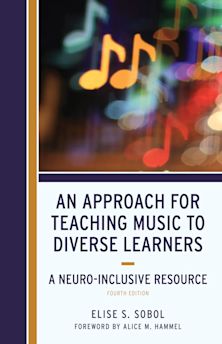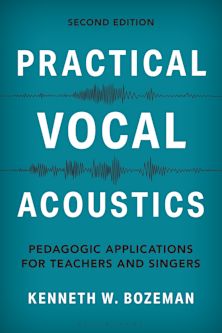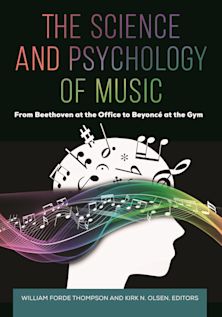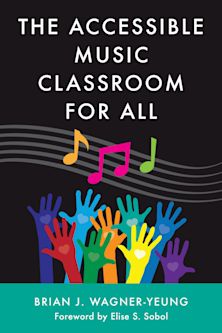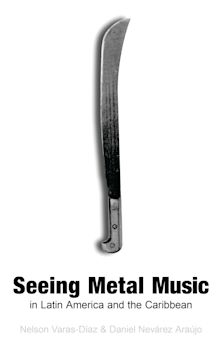- Home
- ACADEMIC
- Music & Sound Studies
- Music and Sound Studies - Other
- The Use of the International Phonetic Alphabet in the Choral Rehearsal
The Use of the International Phonetic Alphabet in the Choral Rehearsal
Duane Richard Karna (Anthology Editor) , Susan Bender (Contributor) , Rene Clausen (Contributor) , Dan Dressen (Contributor) , Christine Ericsdotter (Contributor) , Agnes Farkas (Contributor) , Sue Goodenow (Contributor) , Anna Helwing (Contributor) , Heather M. Garbes (Contributor) , Thomas Goleeke (Contributor) , Joshua Habermann (Contributor) , Martha Herr (Contributor) , Gotzon Ibarretxe (Contributor) , Harald Jers (Contributor) , Soojeong Lee (Contributor) , Min Li (Contributor) , Jaakko Mantyjarvi (Contributor) , Wladimi Mattos (Contributor) , Kathleen Maurer (Contributor) , John Nix (Contributor) , Clayton Parr (Contributor) , Andrew Schmidt (Contributor) , Sten Ternstrom (Contributor) , David M. Thomas (Contributor) , George Olivier Toni (Contributor) , Areti Topouzides (Contributor) , Kathleen Wilson (Contributor) , Minoru Yamada (Contributor) , Mei Zhong (Contributor)
The Use of the International Phonetic Alphabet in the Choral Rehearsal
Duane Richard Karna (Anthology Editor) , Susan Bender (Contributor) , Rene Clausen (Contributor) , Dan Dressen (Contributor) , Christine Ericsdotter (Contributor) , Agnes Farkas (Contributor) , Sue Goodenow (Contributor) , Anna Helwing (Contributor) , Heather M. Garbes (Contributor) , Thomas Goleeke (Contributor) , Joshua Habermann (Contributor) , Martha Herr (Contributor) , Gotzon Ibarretxe (Contributor) , Harald Jers (Contributor) , Soojeong Lee (Contributor) , Min Li (Contributor) , Jaakko Mantyjarvi (Contributor) , Wladimi Mattos (Contributor) , Kathleen Maurer (Contributor) , John Nix (Contributor) , Clayton Parr (Contributor) , Andrew Schmidt (Contributor) , Sten Ternstrom (Contributor) , David M. Thomas (Contributor) , George Olivier Toni (Contributor) , Areti Topouzides (Contributor) , Kathleen Wilson (Contributor) , Minoru Yamada (Contributor) , Mei Zhong (Contributor)
This product is usually dispatched within 1 week
- Delivery and returns info
-
Free US delivery on orders $35 or over
You must sign in to add this item to your wishlist. Please sign in or create an account
Description
“The fusion of text with music is one of the most powerful methods by which a composer can express emotion to an audience, yet, all too often, the diction of choral groups is lacking to such a degree as to make the text unintelligible.” So argues Duane R. Karna, who in The Use of the International Phonetic Alphabet in the Choral Rehearsal brings together 30 essays by experts from around the world to describe how the character symbols of the International Phonetic Alphabet (IPA) can be used by singers in the choral rehearsal.
In an effort to conquer one of the greatest challenges facing choral directors and their choirs, contributors explore the use of the IPA system in a vast range of languages. Readers will find essays devoted to the use of IPA on matters of lyric diction for the following tongues: Baltic Languages, Basque, Brazilian Portuguese, Chinese, Dutch, Ecclesiastical Latin, English, Finnish, French, Georgian, German, Germanic Latin, Greek, Hawaiian, Hebrew, Hungarian, Italian, Japanese, Korean, Norwegian, Polish, Romanian, Russian, Spanish, Swahili, and Swedish. Holding firmly to the belief that basic instruction in IPA character is part of a choir's training, Karna and his contributors see enormous potential for choirs to expand considerably their foreign-language repertoire and save considerable rehearsal time.
The Use of the International Phonetic Alphabet in the Choral Rehearsal is the ideal primer for choral directors and choirmasters as well as choir members.
Table of Contents
Preface
The IPA Symbols
The Use of the IPA in the Choral Rehearsal, Duane Karna
Vowel and Consonant Modification for Choirs, John Nix
English Diction, Thomas Goleeke
Ecclesiastical Latin, Andrew Crow
Italian, Susan Bender
German Diction, Kathleen Maurer
Germanic Latin in Carl Orff’s Carmina Burana, Hank Dahlman
French Diction, Kathleen Maurer
Spanish Diction and the IPA, Joshua Habermann
Hebrew, Ethan Nash
Romanian Language and Pronunciation, Bogdan Minut
Japanese Diction for Singers, Minoru Yamada
Chinese Pronunciation Guide for Western Singers, Mei Zhong
Korean Diction, Soojeong Lee
Singing Brazilian Portuguese, Martha Herr and Wladimir Mattos
Swahili for Native English Language Choral Singers, Stephan Wilson and Kathleen Wilson
Basque Diction, Gotzon Ibarretxe and Kepa Larrea
Hawaiian Diction and the IPA, Joshua Habermann
Hungarian, Harald Jers and Ágnes Farkas
Baltic Languages: Latvian, Lithuanian, and Estonian, Heather M. Garbes and Andrew Schmidt
The Dutch Language, Petronella Palm
Georgian Pronunciation, Clayton Parr
Russian Diction, David M. Thomas
Swedish, Christine Ericsdotter and Sten Ternström
Finnish and IPA, Jaakko Mäntyjärvi
Greek Diction, Areti Topouzides
Norwegian Diction, Dan Dressen
Polish IPA, Anna Helwing
Product details
| Published | Sep 13 2012 |
|---|---|
| Format | Hardback |
| Edition | 1st |
| Extent | 336 |
| ISBN | 9780810881693 |
| Imprint | Scarecrow Press |
| Illustrations | 61 b/w illustrations; 104 tables |
| Dimensions | 10 x 7 inches |
| Publisher | Bloomsbury Publishing |
About the contributors
Reviews
-
The Use of the International Phonetic Alphabet in the Choral Rehearsal addresses a great need in the area of choral musicians: the ability to use diction in their practice and performance in order to enhance the pronunciation of the words that blend with the music. As the editor states, "All too often, the diction of choral groups is lacking to such a degree as to make the text unintelligible" (back cover). It is the editors hope that implementing the teaching of this volume will expand the foreign-language capability of choral musicians, enhancing their overall performance. After introductory chapters on the use of the International Phonetic Alphabet in rehearsal and vowel and consonant modification in the choral setting, each chapter focuses on one specific language: English, Latin, German, French, Spanish, Hebrew, Romanian, Japanese, Swahili, Greek, Russian, and Polish, just to name a few. The contributors go into great deal about the diction of each language, focusing on the most common and troublesome words. The volume concludes with an appendix of four sample songs.
American Reference Books Annual
-
Singers of classical music face a particular challenge: the works they perform are often in languages other than their native language. Voice students and their teachers can find help with pronunciation in books about diction for singers, many of which use the International Phonetic Alphabet (IPA). A seminal example is Phonetic Readings of Songs and Arias, by Berton Coffin et al. (1964; 2nd ed., 1982). Such books are usually intended for solo singers of English, French, German, or Italian repertory. In contrast, the present volume is intended for choirs and is much broader in scope. Karna (Ball State Univ.), who is a veteran academic choral director, opens this collection with an essay (coauthored by Sue Goodenow) on effectively teaching IPA in choral rehearsals. He then presents essays by experienced choral directors and professional singers with special language expertise. These essays provide basic IPA guidelines for singing in 25 different languages and are not choir-focused. Thus, the information they provide is appropriate for choral singers and solo singers alike. This book certainly belongs in academic music libraries and public libraries with significant music collections. Summing Up: Recommended. Lower-division undergraduates through faculty; professionals.
Choice Reviews
-
The Use of the IPA in the Choral Rehearsal by Duane Karna is a valuable resource for singers and conductors. . . .Very few publications supply the breadth and depth of languages that is collated by Karna in this book. It is a valuable resource for anyone who works with singers, whether it is in the secondary classroom, university lecture room, from the podium, or in a private studio.
International Choral Bulletin
-
This very useful volume brings together information in one place regarding choral pronunciation, imparted via the International Phonetic Alphabet (hereafter IPA), of 25 different languages. . . .[T]his volume will be most useful to the choral conductor in providing perspective on diction issues for a broad range of languages, whether or not the IPA orthography makes its way to the choral folder or not.
Music Reference Services Quarterly
-
The volume proves to be a useful starting reference for conductors interested in creating IPA charts for their choirs.
Choral Journal
-
Advocating the use of IPA to voice teachers is preaching to the choir, for they regularly employ the pronunciation tool. Nevertheless, studio instructors are recommended to peruse this useful volume, for they will find it offers valuable assistance with less commonly sung languages. The convenience of having a reference guide to so many languages in one source is incalculable, particularly when resources for some of the languages are difficult to find. Studio instructors are encouraged to explore this most useful volume-and to share the recommendation with their choral colleagues.
Journal of Singing













